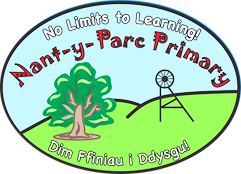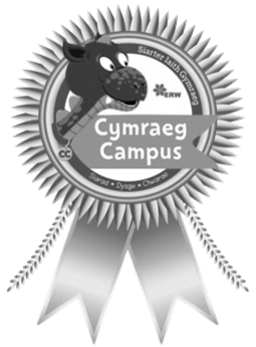How the area of learning and experience supports the four purposes of the curriculum
The Humanities Area of Learning and Experience is central to learners becoming ethical, informed citizens of Wales and the world through engaging with contemporary and historical issues, exploring human experiences on their own doorstep and across the globe, and contemplating different perspectives. They will be asked to consider the impact of their actions and the actions of others, and how these are shaped by interpretations of human rights, values, ethics, religious and non-religious views, and philosophies.
Through this they will come to understand, respect and challenge a variety of world views, knowing how to exercise their democratic rights and to make informed choices, conscious of the importance of a sustainable future for all. As they explore their locality, Wales and the wider world, past and present, learners will establish a solid base of knowledge and understanding of geographical, historical, religious, non-religious, business, and social studies concepts. During this process, they will learn different methods of enquiry, evaluate the evidence that they find, and apply and communicate their findings effectively, all of which will help them become ambitious, capable learners, ready to learn throughout their lives.
Learners will have the opportunities to become enterprising, creative contributors, ready to play a full part in life and work, as well as opportunities to become responsible citizens, as they engage critically with local, national and global challenges and opportunities past and present, and seek to imagine possible futures. All the while, they will be encouraged to think about how they themselves can take positive action to improve the lives of people in their cynefin, in Wales and in the wider world. Learners will have the safe space for discussion and reflection which allows time to explore their personal perspectives on religious and non-religious world views, ethical challenges and social inclusion issues. They will also be asked to explore the natural world, locally, across Wales and beyond, which will nurture a sense of place and well-being. These experiences will help support the development of healthy, confident individuals, ready to lead fulfilling lives as valued members of society in Wales and the wider world.
WHAT MATTERS STATEMENTSFOR HUMANITIES
Developing an enquiring mind enables learnersto explore and investigate the world, past,present and future, for themselves.
Learners’ journey through Humanities will be characterised by enquiry and discovery, as they are encouraged to be curious and to question, to think critically and to reflect upon evidence. Through such enquiry, learners gain a deeper understanding of the concepts underpinning Humanities, and their application in local, national and global contexts. An enquiring mind stimulates new and creative thinking. Engaging with questions empowers learners to understand human experiences and the natural world. Learners use appropriate disciplinary approaches, including digital humanities, to gather, analyse, and evaluate a range of evidence and to communicate and present their findings. Learners interpret and synthesise information to build upon what they have already learned and further inform their understanding of the world. By thinking critically about their discoveries, learners draw informed conclusions, but also understand that some conclusions can only be partial or inconclusive and open to different interpretations. Learners carefully reflect in order to improve their methodology and extend or deepen their enquiry. Learners will also understand that, as well as being a process, enquiry is a quest to understand the human condition. Indeed, enquiry enables self-reflection which adds meaning to their own lives and contributes to their sense of place in the world
Our natural world is diverse and dynamic,influenced by physical processes and human actions.
Learners will have opportunities to nurture curiosity about the natural world and understand how and why it changes. This in turn helps learners to identify what makes a place distinct and develop an awareness of the interconnections between humans and their environment. Consequently, learners are in a better position to make connections between the past and present, and to imagine possible futures. Through understanding a variety of physical processes, and their causes and effects, learners will appreciate how places, environments and landscapes change within Wales and the wider world. They will also develop their understanding of how human actions in the past and today affect the natural world and how the natural world impacts on humans. This will heighten learners’ awareness of how the future sustainability of our world is influenced by the impact of human actions. It will also encourage learners in Wales to understand, as producers and consumers, their impact on the natural world. Learners will explore a range of beliefs and philosophies about the natural world, and how they influence people’s interactions with the world. They will learn also how experiencing the wonder of the natural world can contribute to their spiritual development and well-being, and cultivate a sense of place and sense of belonging, as embodied in the Welsh word cynefin.
Human societies are complex and diverse,and shaped by human actions and beliefs.
An appreciation of identity, heritage and cynefin can influence learners emotionally and spiritually, and help build a sense of self and of belonging. Through an understanding of themselves, learners develop their own identity and an awareness of how they, as individuals, can shape the communities in which they live. Consequently, learners will come to realise that the choices we all make, individually and collectively, can have major impacts. Learners will develop an understanding of the complex, pluralistic and diverse nature of societies in Wales and the wider world. Over time, these societies have evolved, experiencing continuity and change that has affected, and continues to affect, their own and other people’s lives. This evolution is driven by the interplay between a range of factors, including human actions and beliefs, and physical forces. Humanities builds an understanding of the causes, consequences and significance of the changes and forces that have shaped societies. Humanities encourages a critical understanding of how societies in Wales and the wider world are organised, structured and led. Societies are characterised by a range of cultural, economic, legal and political norms and values. They are also dynamic, both driving and reacting to changes on a local, national and global scale. Learners will explore the connections between such societies in the past and present. They will also be encouraged to explore – and develop a tolerant and empathetic understanding of – the varied beliefs, values, traditions and ethics that underpin and shape human society.
Informed, self-aware citizens engage with the challenges and opportunities that face humanity, and are able to take considered, ethical and sustainable action.
Learners will develop an understanding of their roles as citizens and the importance of creating a just and sustainable future for themselves and their communities in an interconnected world. It encourages learners to be active, informed, and responsible citizens, who are able to identify with and contribute to their local, national and global communities, now and in their future lives. Humanities will invite learners to identify and engage with past, contemporary and anticipated challenges and opportunities facing themselves, their local community, Wales and the wider world. They will also come to understand the nature of economic, environmental and social sustainability, justice, interconnectedness and authority, and realise the significance of living in and contributing to a fairer and more inclusive society. Learners will develop not only an awareness of their own rights, but also of the rights, needs, concerns and feelings of others in creating a sustainable and interconnected world. Questioning and evaluating existing responses to challenges and opportunities will help learners develop as self-aware, informed, ethical global citizens who critically reflect on their own beliefs and values. They will be able to consider the impact of their actions when making choices and exercising their democratic rights and responsibilities. Learners will also be able to justify their decisions when acting socially, politically, economically and entrepreneurially. This will enable learners to take committed social action as caring, participative citizens of their local and global communities, showing a dedication to justice, diversity and the protection of the environment. What is more, by responding to challenges, and taking opportunities for social and sustainable action, they can create meaning and purpose in their own lives.
Humanities at Nant Y Parc Primary School
At Nant Y Parc Primary School we strive to deliver rich learning opportunities that promote cultural diversity, equality and understanding of the world around us . Each Area of Learning has an overarching agreement to deliver rich opportunities for our learners that is personal to our learners, our curriculum and our community.
One of our agreements in Humanities is "Periods of Time". We want children to experience a curriculum that develops their critical thinking, research and enquiry skills through a series of historical events. Through learning about different periods of time, we want children to build on previously acquired skills and apply them in other contexts as they progress through school.
We have broken down the humanities area of learning to look at enquiry & research and views & opinions. These include providing opportunities to share, reflect and contribute to different view and beliefs and how this impact the lives of those in our community and beyond.
Finally, each area of learning focuses on famous and extraordinary individuals that inspire us in each area of learning. In humanities for example our learners will experience leaders and historical figures that have had an impact on their lives such as the King, Betty Cambell & St David.











